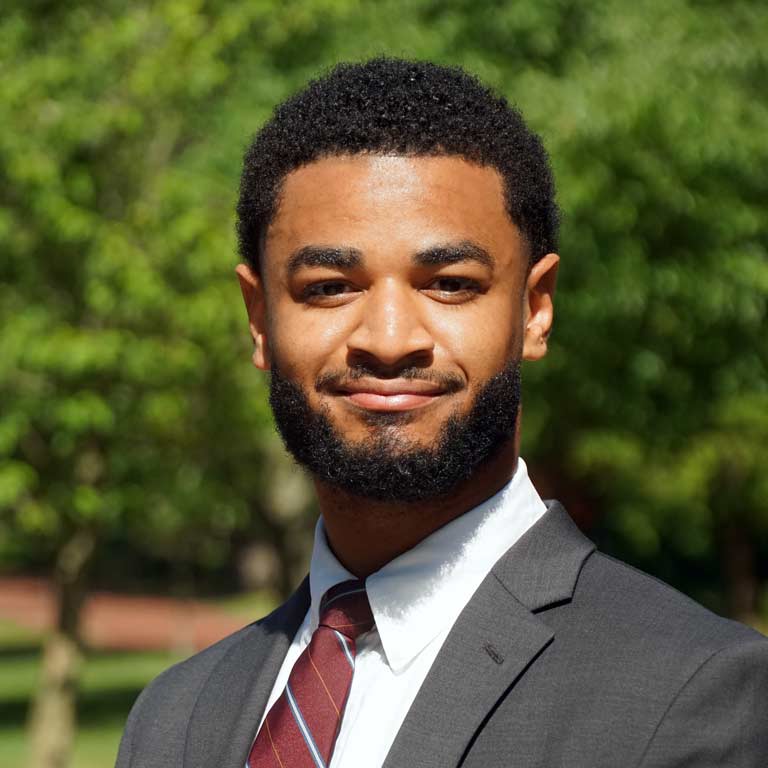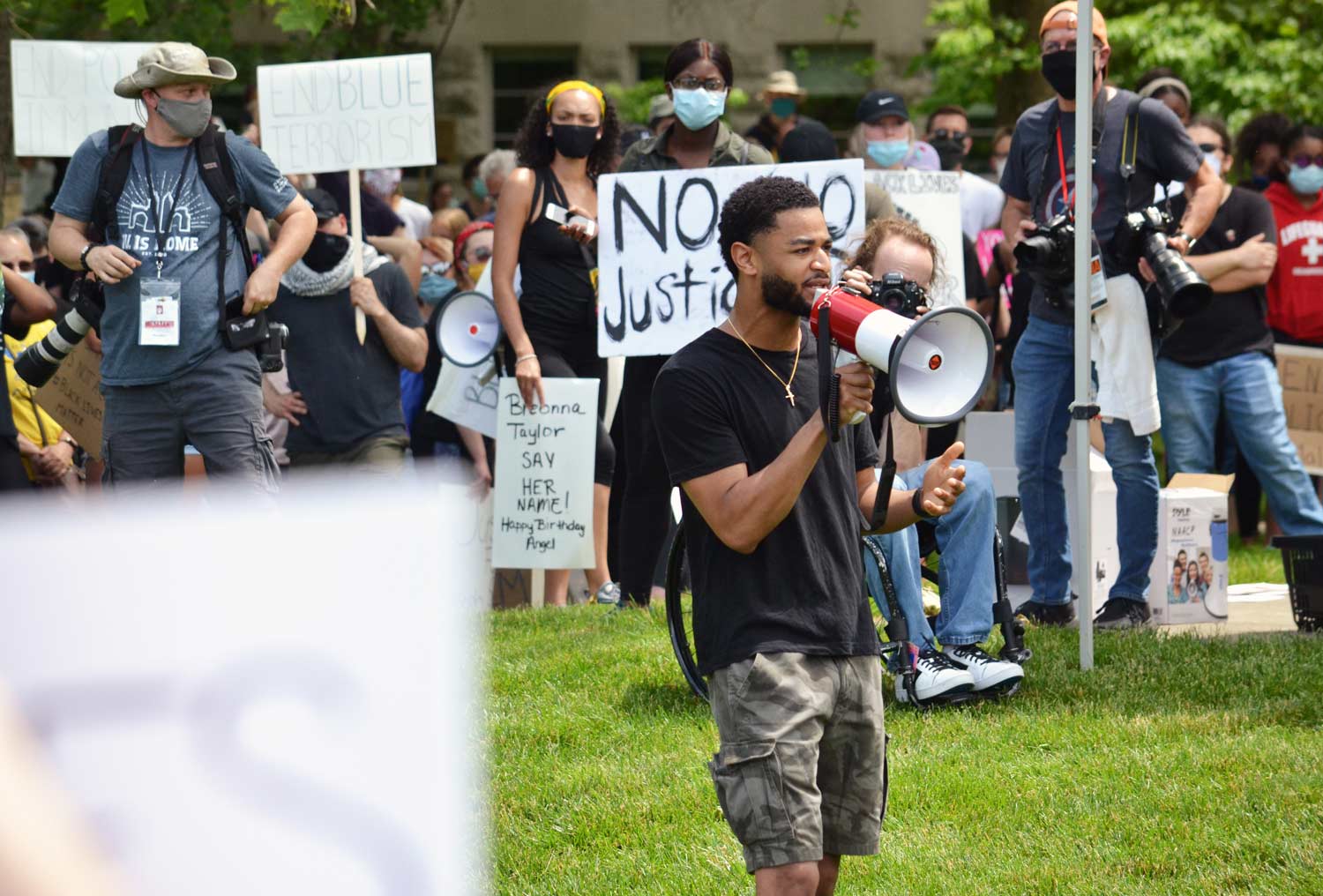Justin M. L. Freeman, a senior (May 2021) in the Kelley School of Business, spoke with a passion that inspired a crowd of thousands at Bloomington’s Enough Is Enough March on June 5. Already a seasoned activist, organizer, and educator, Freeman is dedicated to leading a new generation he believes is motivated to confront and end systemic racism. He recently spoke with Emma Cline, a student journalist in the College of Arts and Sciences, about his experiences as a Black student on the IU Bloomington campus and offered a vision of what must happen next as the Bloomington campus and community work to end systemic racism.
Leading the march for equity



